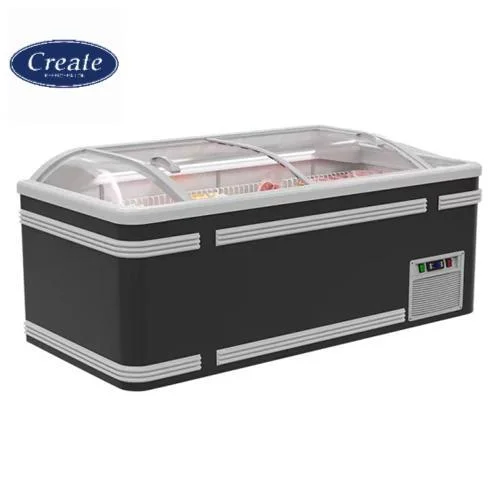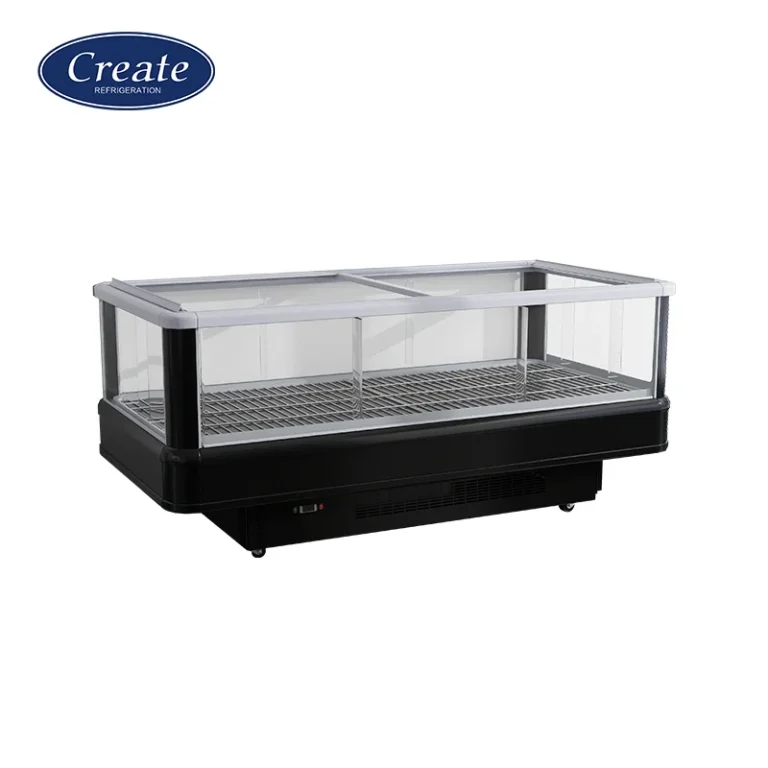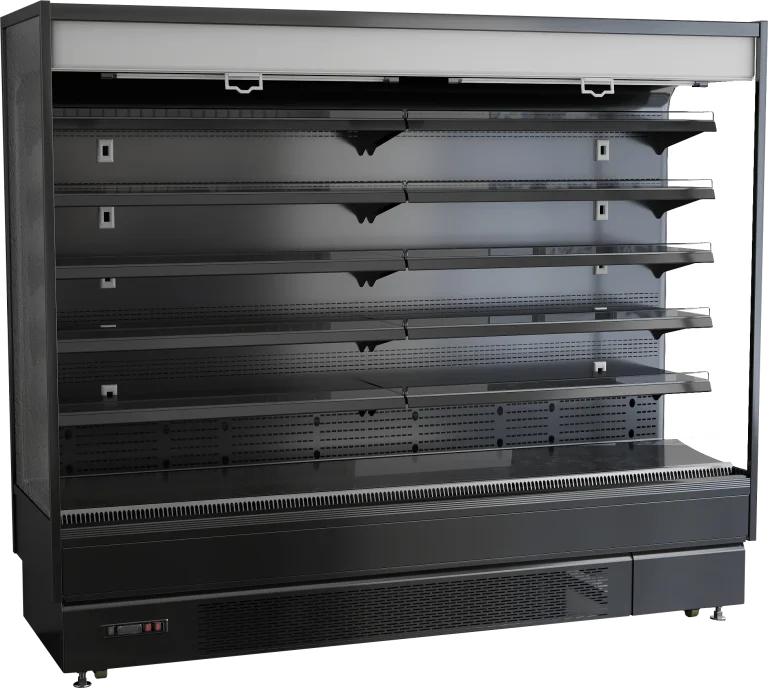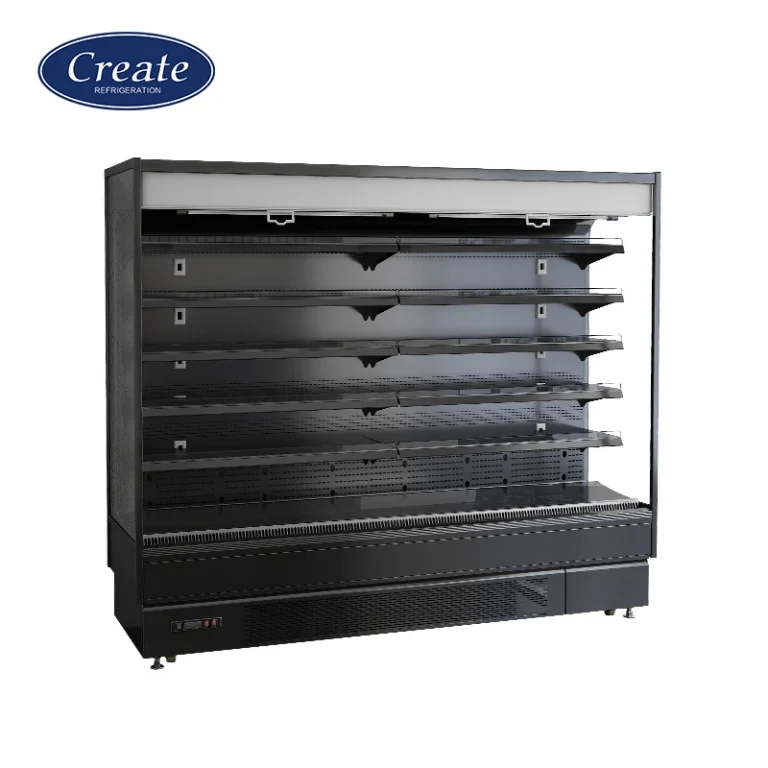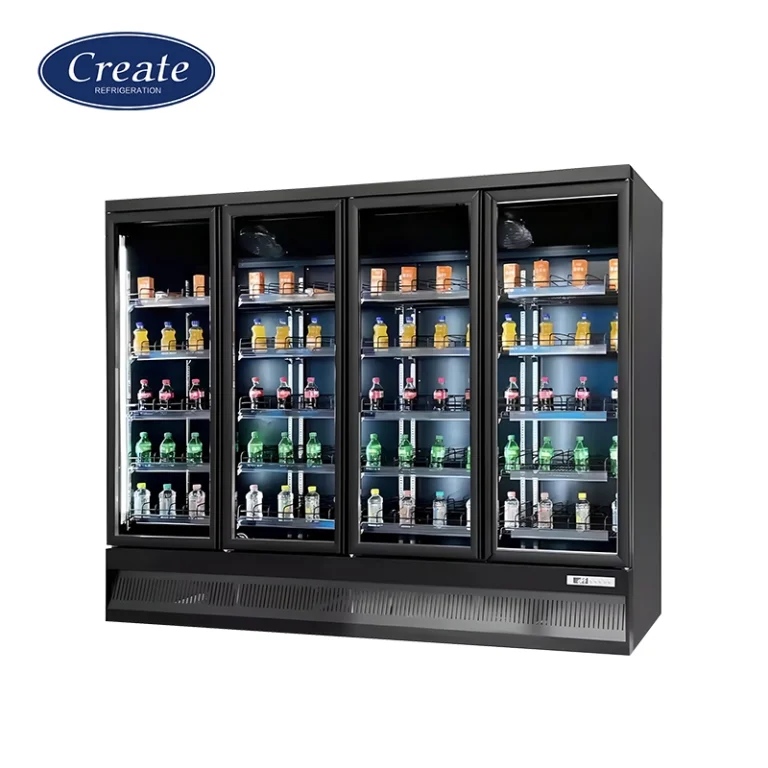Domestic vs. Commercial Refrigerators: Which Fits Your Needs? Uncover the ideal refrigeration solution! Explore vital distinctions in design, efficiency, and resilience. This helps you choose wisely for your home or business. Your path to the perfect refrigerator starts now!
Key Differences Between Domestic and Commercial Refrigerators
What sets domestic and commercial refrigerators apart? Let’s dive into the details.
Design and Build Quality
Choosing between a domestic and a commercial refrigerator hinges on design and construction. Domestic models are crafted to blend smoothly into home settings. They boast stylish looks, compact builds, and quieter performance. These units suit light-duty tasks. They cater to small families’ needs.
Commercial refrigerators, however, prioritize sturdiness. They use robust materials like stainless steel. This ensures they endure intense use in places like restaurants or stores. Their design focuses on toughness and utility over beauty. They handle frequent door openings. They also maintain steady cooling under pressure.
Cooling Capacity and Performance
Cooling strength shapes a refrigerator’s effectiveness. Domestic models are built for moderate use. They store food for small households. Their cooling power is limited. It suits home needs but may struggle in high-demand scenarios.
Commercial units excel with stronger cooling abilities. They meet business demands. Equipped with potent compressors, they recover temperatures quickly. Even frequent door openings don’t faze them. Their advanced systems ensure reliability. This is vital for food safety in busy settings.
Energy Efficiency Considerations
Energy savings matter when comparing these refrigerators. Domestic models are typically more economical. Their smaller size uses less power. Many include smart features. These involve inverter technology or green refrigerants.
Commercial refrigerators use more energy. Their larger builds and robust systems demand it. Yet, modern units incorporate efficient technologies. These cut long-term costs. Business owners must balance initial energy use with future savings.
Durability and Longevity
Domestic refrigerators aren’t made for heavy tasks. Their lifespan suffers in tough conditions. Components wear out faster under constant use or heavy loads. This is common in commercial environments.
Commercial models are built for endurance. They last longer. Their rugged parts handle round-the-clock operation. This makes them perfect for businesses needing dependable cooling at all times.
Challenges of Using a Domestic Fridge in a Commercial Setting
While metal roofing fits low-pitch projects, using domestic refrigerators commercially brings hurdles. Businesses must weigh these for peak performance.
Inadequate Storage Space for Commercial Needs
A major issue is limited storage. Domestic fridges can’t hold large amounts of food or drinks. Businesses like restaurants need more space. This shortage causes inefficiencies. It also leads to frequent restocking.
Limited Cooling Power for High-Demand Usage
Domestic models lack strong cooling systems. Commercial units have these in abundance. High-demand tasks overwhelm domestic fridges. Frequent door openings or large volumes strain them. They fail to keep steady temperatures. This risks food safety standards critical for businesses.
Increased Wear and Tear in Heavy-Duty Environments
Domestic fridges face rapid wear in commercial use. They aren’t built for heavy tasks. Compressors, seals, and shelves break down early. This happens under constant strain. The result is higher repair costs. It also causes potential downtime.
Regulatory and Safety Concerns
Beyond performance, using domestic fridges commercially raises compliance and safety issues. Businesses must address these carefully.
Compliance with Health and Safety Standards
Commercial operations face strict rules for food storage. Domestic fridges often lack required certifications. Using them risks breaking local laws. It also violates industry standards.
Food Safety Risks in Commercial Operations
Domestic fridges may cool unevenly. This poses food safety hazards. Temperature swings can spur bacterial growth. This harms stored goods’ quality and safety. It’s a major concern for businesses with perishables.
Benefits of Choosing a Commercial Refrigerator
While regulations highlight risks, commercial refrigerators offer clear perks. These make them a wise pick for foodservice businesses.
Enhanced Cooling Capabilities for Large-Scale Storage
Commercial units provide top-tier cooling. They’re designed for big storage needs. Their systems recover temperatures fast after door openings. This keeps food fresh longer. It ensures quality in high-volume settings.
Tailored Features for Business Requirements
Commercial models differ from domestic ones. They include business-focused features. Think adjustable shelves, digital controls, or self-closing doors. Some have special compartments. These boost efficiency. They also add convenience in fast-paced environments.
Cost-Effectiveness Over Time Despite Higher Initial Investment
Commercial refrigerators cost more upfront. Yet, they save money long-term. Their toughness cuts maintenance needs. Energy-efficient designs lower bills. Fewer repairs or replacements ensure reliability. This supports smooth business operations.
Brief Introduction to Create Refrigeration as a Reliable Supplier
Create Refrigeration shines in the commercial refrigeration field. Their focus on superior products sets them apart. Exceptional service earns them trust among businesses. Their wide product range meets varied needs. Innovation and sustainability drive their offerings.
Overview of Create Refrigeration’s Product Range
Create Refrigeration provides a broad selection. Their solutions fit commercial demands. The lineup includes upright refrigerators and chest freezers. They also offer display coolers and walk-in cold storage. These serve restaurants, stores, catering, and food production.
Each unit uses sturdy materials like stainless steel. This ensures long life. They withstand daily commercial rigor. Advanced cooling systems maintain steady temperatures. This preserves perishables perfectly. Features like adjustable shelves enhance functionality. Energy-saving compressors cut costs. Digital displays add ease.
Customization is a key strength. Businesses can choose compact models for tight spaces. Larger units suit high-volume needs. Create Refrigeration’s designs align with operational goals. They deliver efficiency across industries.
Conclusion
Create Refrigeration excels with high-quality units. Their outstanding support makes them a dependable partner. Businesses benefit from reliable cooling. They also stay compliant with safety standards. Choosing their products ensures smooth operations.
Frequently Asked Questions (FAQs)
What is the main difference between domestic and commercial refrigerators?
Domestic models suit home use. They offer moderate cooling and stylish looks. They’re smaller and use less energy. Commercial units are built for heavy tasks. They use tough materials like stainless steel. Their strong cooling handles frequent use and large volumes.
Can I use a domestic fridge temporarily for my small business?
A domestic fridge may work briefly for small operations. However, it’s not ideal long-term. It lacks the strength and cooling for commercial demands. Constant use causes temperature issues. It also risks regulatory violations.
How do I choose the right commercial refrigerator for my business?
Assess your storage needs first. Consider your facility’s space. Check energy efficiency to cut costs. Look for features like adjustable shelves. Digital controls help, too. Ensure the unit meets local safety standards.


